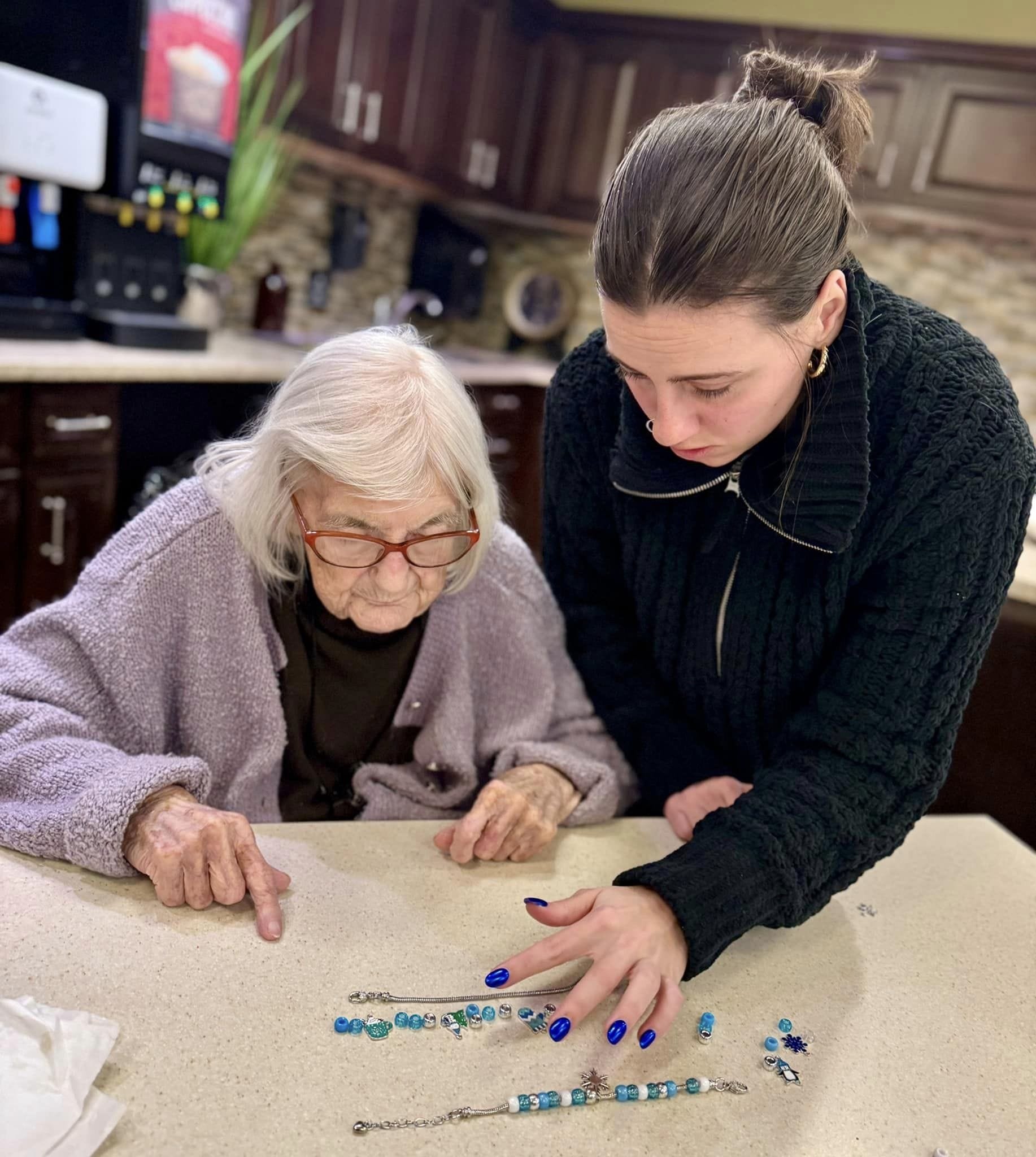Outstanding Facilities Offering Comprehensive Alzheimers Care Charlotte
Outstanding Facilities Offering Comprehensive Alzheimers Care Charlotte
Blog Article
Creating a Safe and Helpful Environment for Alzheimer's Care
The production of a risk-free and supportive atmosphere for individuals with Alzheimer's is extremely important in enhancing their lifestyle. This involves not just physical adaptations within the home, such as lessening threats and integrating familiar aspects, yet likewise the implementation of organized routines and purposeful tasks that accommodate their cognitive demands. Understanding the mental and psychological measurements of treatment can substantially affect their sense of protection and connection. Exploring these diverse approaches can reveal important understandings right into effective caregiving approaches that may transform the everyday experiences of both caretakers and people.
Recognizing Alzheimer's Requirements
Frequently, individuals with Alzheimer's disease exhibit an array of demands that require tailored approaches to care. As the problem proceeds, cognitive decrease materializes in numerous means, affecting memory, reasoning, and even the capacity to execute day-to-day tasks. Caretakers should recognize these evolving demands to supply appropriate assistance and ensure a better of life for those influenced.
One essential facet of comprehending Alzheimer's needs is recognizing the significance of routine and knowledge. Individuals frequently find convenience in established patterns, which can reduce anxiousness and confusion. Caretakers ought to strive to create structured day-to-day schedules that include significant tasks aligned with the person's abilities and rate of interests.
Additionally, effective interaction is critical. People with Alzheimer's may battle to express themselves or comprehend complicated language. Caregivers need to employ basic, clear language, use non-verbal hints, and technique energetic paying attention to foster understanding and connection.
Last but not least, emotional and social demands can not be neglected. Supplying opportunities for social interaction and keeping partnerships can dramatically boost psychological wellness. Caretakers need to urge interaction in area tasks or household events, advertising a sense of belonging and objective. Understanding these diverse demands is essential for producing a helpful treatment setting.
Creating a Safe Home
Developing a secure home for people with Alzheimer's condition is necessary to promoting and lessening dangers self-reliance. The design of the living space should focus on safety while enabling individual convenience. Eliminate possible dangers such as loose rugs, sharp things, and mess, which can lead to drops or mishaps. Guarantee that pathways are well-lit and clear, as appropriate illumination reduces disorientation and boosts wheelchair.
Including adaptive functions is also vital. Install grab bars in washrooms and near stairways, and consider utilizing non-slip floor coverings in wet locations. Additionally, making use of contrasting shades for walls and floors can help in identifying areas, aiding to reduce complication.
Knowledge is essential for individuals with Alzheimer's. Individualizing the atmosphere with acquainted things and photographs can strengthen a feeling of belonging and safety - Alzheimers Care Charlotte. It is also useful to have actually a marked location for daily activities, such as analysis or crafting, which can provide structure to their day
Finally, applying a secure outdoor room enables risk-free expedition while attaching with nature. By attentively making the home setting, caretakers can significantly improve the lifestyle for people coping with Alzheimer's illness.
Enhancing Communication Skills

Non-verbal communication, consisting of faces, gestures, and touch, plays a crucial role in conveying compassion and understanding. Preserving eye call and a tranquil behavior can enhance the convenience degree of the individual, advertising a sense of safety.
In addition, it is necessary to practice active listening. This entails being completely existing, showing perseverance, and enabling the person to express themselves without disruption. Repetition might be necessary; caretakers ought to be prepared to revisit subjects or questions, as people with Alzheimer's may deal with memory recall.
Furthermore, utilizing aesthetic aids or hints, such as photographs or familiar items, can help with acknowledgment and engagement. Inevitably, enhancing communication abilities is regarding building depend on and developing an environment where people really feel heard, valued, and understood, consequently enriching their high quality of life.
Urging Social Interaction
Fostering significant social interactions can substantially enhance the wellness of people with Alzheimer's condition. Engaging with others not only aids combat feelings of isolation however likewise boosts cognitive function and psychological wellness. Structured social tasks, such as team arts, video games and crafts, or music therapy, produce opportunities for citizens to get in touch with peers and caretakers, which can bring about improved mood and decreased anxiousness.
Developing a welcoming environment that encourages socialization is vital. This can be accomplished by organizing public rooms that promote communication, such as comfy seating locations or task areas. Additionally, incorporating familiar and culturally relevant tasks can urge and trigger memories engagement, permitting people with Alzheimer's to feel even more linked to their previous experiences.
Moreover, caregivers ought to be trained to recognize and advertise social engagement amongst citizens. By focusing on social interaction, we can significantly improve the lives of those living with Alzheimer's, fostering a feeling of community and belonging.
Sustaining Caretaker Well-being

To sustain caregivers, companies ought to use normal training and instructional resources to enhance their understanding of Alzheimer's illness and caregiving methods. Giving accessibility to respite care services allows caregivers to take needed breaks, reducing stress and fatigue - Alzheimers Care Charlotte. Furthermore, promoting a neighborhood with support system can promote psychological sharing and the exchange of sensible suggestions amongst caretakers, developing a network of mutual support
Mental health sources, such as therapy solutions, can likewise be essential in addressing the psychological toll caregiving can take. By focusing on caretaker wellness, we produce a more sustainable caregiving environment that not only benefits the caretakers themselves yet likewise improves the overall quality of care received by people with Alzheimer's. Eventually, supporting caregivers is an essential component in fostering a compassionate and reliable care Website setup.
Final Thought
In conclusion, the development of a risk-free and helpful setting for individuals with Alzheimer's is vital to enhancing their lifestyle. By prioritizing safety and security with thoughtful design, cultivating psychological well-being with familiar components, and promoting involvement with structured routines, caretakers can considerably impact the total experience of those impacted by this condition. In addition, supporting caretaker well-being is crucial, as it ultimately adds to a more caring and effective care setting.
Rep may be needed; caregivers must be prepared to revisit questions or topics, as people with Alzheimer's might have a hard time with memory recall.

Report this page